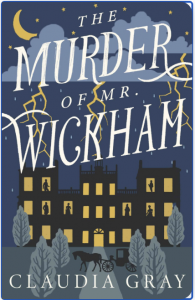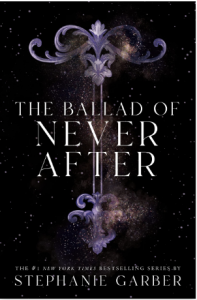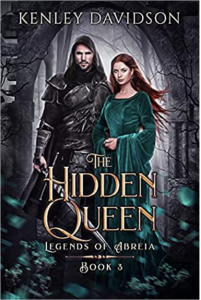C.A. Gray's Blog, page 22
December 23, 2022
A Conflict of Visions, Thomas Sowell
This week’s podcast review comes from this blog review of A Conflict of Visions.
The post A Conflict of Visions, Thomas Sowell appeared first on C.A. Gray.
December 22, 2022
Review of The Murder of Mr Wickham
 A great idea, though the execution of it was so-so.In this blend of Jane Austen and Agatha Christie, many of Austen’s main characters assemble in a house party thrown by the Knightleys. Unfortunately, George Wickham crashes the party, and then turns up dead. It’s many years since several of the books have taken place, and so Elizabeth and Mr. Darcy have a grown son, Jonathan, who, with Juliet Tilney (and I didn’t catch who her parents were supposed to be) are the main characters and sleuths to find the murderer.There were (naturally) many allusions to Austen’s original stories, and I could tell that the author was trying to be faithful to the characters–yet somehow they still felt like completely different people. Perhaps this was because Gray’s writing style is so very different from Austen’s. It lacked her biting wit and tongue-in-cheek social niceties fraught with underlying meaning.I gathered that Jonathan, meanwhile, was supposed to be somewhere on the autistic spectrum. That seemed anachronistic to me–if such a thing existed at all in those days, it must have been exceedingly rare, judging by statistics (cases are skyrocketing now, but that’s because the world is soooo much more toxic now than it was in the Regency period). Speaking of anachronism, there were also big chunks of the story devoted to modern political issues which would have been almost unknown then. That definitely pulled me out of the story, as did the author’s tendency to insert her own (currently popular) religious understanding in the character’s mouths.I will say that while I thought there was little way for her to resolve the murder without desecrating one of our beloved heroes or heroines, she managed to do it in such a way that did not do so. So that part was nice!My rating: ***Language: noneSexual content: noneViolence: none (other than there’s a dead body, but it was a “polite” murder)Woke content: moderate
A great idea, though the execution of it was so-so.In this blend of Jane Austen and Agatha Christie, many of Austen’s main characters assemble in a house party thrown by the Knightleys. Unfortunately, George Wickham crashes the party, and then turns up dead. It’s many years since several of the books have taken place, and so Elizabeth and Mr. Darcy have a grown son, Jonathan, who, with Juliet Tilney (and I didn’t catch who her parents were supposed to be) are the main characters and sleuths to find the murderer.There were (naturally) many allusions to Austen’s original stories, and I could tell that the author was trying to be faithful to the characters–yet somehow they still felt like completely different people. Perhaps this was because Gray’s writing style is so very different from Austen’s. It lacked her biting wit and tongue-in-cheek social niceties fraught with underlying meaning.I gathered that Jonathan, meanwhile, was supposed to be somewhere on the autistic spectrum. That seemed anachronistic to me–if such a thing existed at all in those days, it must have been exceedingly rare, judging by statistics (cases are skyrocketing now, but that’s because the world is soooo much more toxic now than it was in the Regency period). Speaking of anachronism, there were also big chunks of the story devoted to modern political issues which would have been almost unknown then. That definitely pulled me out of the story, as did the author’s tendency to insert her own (currently popular) religious understanding in the character’s mouths.I will say that while I thought there was little way for her to resolve the murder without desecrating one of our beloved heroes or heroines, she managed to do it in such a way that did not do so. So that part was nice!My rating: ***Language: noneSexual content: noneViolence: none (other than there’s a dead body, but it was a “polite” murder)Woke content: moderateThe post Review of The Murder of Mr Wickham appeared first on C.A. Gray.
December 16, 2022
The Hidden Queen by Kenley Davidson
This week’s podcast comes from this blog review of The Hidden Queen.
The post The Hidden Queen by Kenley Davidson appeared first on C.A. Gray.
Review of The Captive Throne
 As the end of a series (a duology in this case, where Evaraine and Danric are the main characters, in the larger series of Abreia), this one kind of fell flat to me. The world is the same as it was for the first two books, so that wasn’t the issue — I still get immersed in Davidson’s alternate worlds, always peppered with magic and political intrigue. But in a fantasy romance, the characters are paramount – and this pair just didn’t do it for me. I think it’s because they were both so understated and reserved, which made for very little chemistry.The story picks up after Danric learns that his father isn’t really his father, but a mirror mage impersonating his father. His brother, meanwhile, is also a mage, and he’s missing too. Danric has spent all his life thinking magic is evil, and Evaraine thus assumes that, even though they’re already married by the time the book opens, he’ll want nothing to do with her once he learns that she’s a mage too. She’s spent all her life hiding her specific gift of taking the life force of other creatures, afraid that she might lose control, and also that anyone who knew would think her a monster. (This is certainly a good excuse for why she is so reserved.) Danric, meanwhile, is the proper crown prince, and he’s all duty. He ends up being Evaraine’s travel companion when she goes back to her own nation of Farhall after learning that her father the king is being controlled by a mage as well. Meanwhile, a strange series of wraith creatures threaten both their kingdoms–and only mages, and particularly those with Evaraine’s gift, are any match for them.The characters are well sketched, I just think they’re ill-matched to each other. Chapters alternate between them, so we learn what they’re really thinking, at least… I just didn’t feel the tension between them I suppose. This rendered what would otherwise have been a great, if common scenario (a secret marriage) far less interesting. Like all of Kenley Davidson’s books, though, this one is great for winding down before bed.My rating: *** 1/2Language: noneSexual content: noneViolence: fantasy onlyWoke content: none
As the end of a series (a duology in this case, where Evaraine and Danric are the main characters, in the larger series of Abreia), this one kind of fell flat to me. The world is the same as it was for the first two books, so that wasn’t the issue — I still get immersed in Davidson’s alternate worlds, always peppered with magic and political intrigue. But in a fantasy romance, the characters are paramount – and this pair just didn’t do it for me. I think it’s because they were both so understated and reserved, which made for very little chemistry.The story picks up after Danric learns that his father isn’t really his father, but a mirror mage impersonating his father. His brother, meanwhile, is also a mage, and he’s missing too. Danric has spent all his life thinking magic is evil, and Evaraine thus assumes that, even though they’re already married by the time the book opens, he’ll want nothing to do with her once he learns that she’s a mage too. She’s spent all her life hiding her specific gift of taking the life force of other creatures, afraid that she might lose control, and also that anyone who knew would think her a monster. (This is certainly a good excuse for why she is so reserved.) Danric, meanwhile, is the proper crown prince, and he’s all duty. He ends up being Evaraine’s travel companion when she goes back to her own nation of Farhall after learning that her father the king is being controlled by a mage as well. Meanwhile, a strange series of wraith creatures threaten both their kingdoms–and only mages, and particularly those with Evaraine’s gift, are any match for them.The characters are well sketched, I just think they’re ill-matched to each other. Chapters alternate between them, so we learn what they’re really thinking, at least… I just didn’t feel the tension between them I suppose. This rendered what would otherwise have been a great, if common scenario (a secret marriage) far less interesting. Like all of Kenley Davidson’s books, though, this one is great for winding down before bed.My rating: *** 1/2Language: noneSexual content: noneViolence: fantasy onlyWoke content: noneThe post Review of The Captive Throne appeared first on C.A. Gray.
December 9, 2022
The Ghost Bride by Yangsze Choo
Today’s podcast comes from this podcast review of The Ghost Bride.
The post The Ghost Bride by Yangsze Choo appeared first on C.A. Gray.
Review of The Ballad of Never After

Ugh, what a let-down! And even so, I raced through it, so I feel like I have to give it at least three stars.
My general impression of Garber’s books is that they’re colorful and whimsical in the extreme, filled with lavish balls and gowns, and magic without rules or logic. The plots always revolve around a central romantic couple. This book certainly checked those boxes too, and the whimsy and creativity keeps me hooked, even though I did a lot of eye-rolling in this one too. The plot felt like it was flimsily strung between opportunities for titillating moments between Jacks and Evangeline, many of which felt contrived and also frustrating. Jacks was always 100% bad boy, with moments where Evangeline thought he might like her, only to then mock her the next minute. And yet she fell for him anyway–even though in the span of two books she’d been romantically tangled with two other characters and still turns her head every time a new handsome stranger enters the arena as well. She reminds me of Marianne from “Sense and Sensibility”–she’s all flighty sensibility and absolutely no sense. (I also kept thinking throughout this story of Jordan Peterson’s argument that women don’t fall for the “nice guy”–they want the proverbial Beast, whom they hope can be tamed. Jacks is a perfect example of this argument, as is the popularity of the series.)
Even still, because the prose is so magical, I might have given this finale four stars, except for the ending. I won’t even protest the fact that it made no sense… that’s kind of par for the course. But it wasn’t even emotionally satisfying. Granted, the ending we’re set up to desire wouldn’t have been logical, but so what? This entire series is an exercise in suspension of disbelief anyway, and besides, the ending we got instead also made no sense. So why not at least go for a happily ever after? Was it just so she could use the title, “The Ballad of Never After”? (Which, admittedly, is a great title.) I seriously suspect that was the whole reason.
My rating: ***
Language: none that I can recall
Sexual content: no actual sex scenes, but the sexual innuendo is quite heavy
Violence: present but in a fantastical way
Woke content: none
The post Review of The Ballad of Never After appeared first on C.A. Gray.
December 2, 2022
Review of The Hidden Queen

Leisa’s and Kyrion’s stories get wrapped up by the second book in this series; this one picks up with peripheral characters from the first two, Princess Evaraine of Farhall and Prince Danric of Garimore. Neither seemed like compelling characters in the first two books, so that was an interesting choice. But Davidson took what we already knew about them and expounded in this book in ways that did actually turn out to be interesting.
The entire premise of the first two books was that Evaraine was betrothed to Prince Vaniell, the younger prince of Garimore, but it appeared to be a ruse for Garimore’s control over Farhall. Leisa had previously impersonated Evaraine in the Garimorian court, as a mirror mage. In this book, Evaraine herself, weak though she is supposed to be, has to go to court herself now that Leisa has been sent to marry the elf king. We’re told at the beginning that she and Danric have a bit of a history: as children, they corresponded after the death of Evaraine’s mother, and he comforted her, in his own blunt way.
Now Evaraine’s betrothed, Vaniell, is missing, and it appears that he has no intention of ever marrying her. Now that we’re in Evaraine’s head, we also learn why she seemed to be so weak: she’s a mage too, with the power to take other people’s life force with a touch. She actually needs it in order to have enough energy to live, but her morals prevent her from doing so, except when in dire need for self-protection. Meanwhile, the anti-mage Prince Danric and she discover that Vaniell himself is a mage, and Danric’s father, King Melger, isn’t Melger at all but a mirror mage himself. In their attempts to unravel the unknown mage’s plans for conquest and protect their respective people, the two of them grow closer in spite of themselves. It’s a strange romance, really–both of them are so reserved, for different reasons. It’s not the whirlwind passion that Leisa and Kyrion had by any means, but it’s intriguing nevertheless. And the ending set up a very interesting dynamic for the fourth and final book in the series.
My rating: ****
Language: none
Sexual content: none
Violence: none to speak of
Woke content: none
The post Review of The Hidden Queen appeared first on C.A. Gray.
The Adventure of the Final Problem, A. Conan Doyle
Today’s podcast review comes from this blog review of The Adventure of the Final Problem
The post The Adventure of the Final Problem, A. Conan Doyle appeared first on C.A. Gray.
The Awakened Brain by Lisa Miller
Today’s podcast comes from this blog review of The Awakened Brain.
The post The Awakened Brain by Lisa Miller appeared first on C.A. Gray.
The Wendy by Erin Michelle Sky and Steven Brown
Today’s podcast comes from this blog review of The Wendy.
The post The Wendy by Erin Michelle Sky and Steven Brown appeared first on C.A. Gray.



